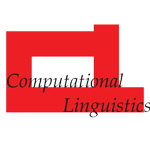
COMPUTATIONAL LINGUISTICS
Scope & Guideline
Unlocking New Frontiers in Language and Technology
Introduction
Aims and Scopes
- Natural Language Processing (NLP) Techniques:
The journal publishes research on various NLP techniques, including machine translation, text summarization, sentiment analysis, and dialogue systems, showcasing advancements in algorithms and models that facilitate language understanding. - Linguistic Theory and Computational Models:
Research that bridges linguistic theory with computational models is a core focus, exploring how theoretical insights can inform the development of effective computational tools for language processing. - Machine Learning and Deep Learning Applications:
A significant emphasis is placed on the application of machine learning and deep learning methodologies to language tasks, including the development of neural networks for various language processing challenges. - Cross-Linguistic and Low-Resource Language Research:
The journal addresses challenges in cross-linguistic studies and low-resource language processing, promoting methods that enhance the accessibility and usability of NLP technologies across diverse languages. - Evaluation and Interpretability of NLP Models:
There is a consistent focus on the evaluation of NLP systems, including the reliability of evaluation metrics and the interpretability of models, ensuring that they are robust and understandable.
Trending and Emerging
- Explainability and Interpretability in NLP:
There is an increasing focus on making NLP models more interpretable and explainable, addressing the need for transparency in AI systems and enhancing user trust in automated language processing. - Integration of Linguistic Typology in NLP:
Research that incorporates insights from linguistic typology into NLP applications is on the rise, emphasizing the importance of understanding language diversity in developing more effective models. - Ethics and Social Implications of NLP:
Emerging discussions around the ethical implications of NLP technologies, including biases in language models and their societal impacts, are becoming more prominent in recent publications. - Low-Resource Language Processing:
There is a growing emphasis on developing methodologies for processing low-resource languages, reflecting a broader commitment within the field to inclusivity and accessibility in language technologies. - Neural Approaches to Language Generation:
Advancements in neural generation techniques, particularly in data-to-text generation and conversational agents, are becoming a focal point, showcasing the potential of neural models in creating coherent and contextually relevant text.
Declining or Waning
- Traditional Rule-Based Approaches:
There has been a marked decrease in publications focusing on traditional rule-based methods for language processing, as the field increasingly favors data-driven approaches, particularly those leveraging deep learning. - Basic Statistical Methods:
The prevalence of basic statistical methods in NLP research appears to be declining as more sophisticated machine learning techniques take precedence, leading to a reduced focus on simpler models and analyses. - Theoretical Linguistics Without Computational Integration:
Research that explores theoretical linguistic concepts without computational application is less common, indicating a shift toward more applied studies that prioritize practical NLP outcomes. - Focus on Language-Specific Studies:
There is a diminishing trend in studies that focus exclusively on specific languages, as the journal's emphasis shifts toward cross-linguistic methodologies and universal approaches in NLP.
Similar Journals
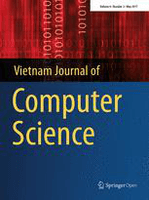
Vietnam Journal of Computer Science
Pioneering research that drives computational excellence.Vietnam Journal of Computer Science, published by World Scientific Publishing Co Pte Ltd, serves as a prominent platform for researchers and professionals in the rapidly evolving field of computer science. Launched as an Open Access journal in 2013, it aims to disseminate high-quality research across various subfields, including Artificial Intelligence, Computational Theory and Mathematics, Computer Vision, and Information Systems. With its ISSN 2196-8888 and E-ISSN 2196-8896, the journal provides valuable insights and contributes to the growing body of knowledge in computer science, particularly in Southeast Asia. Despite its relatively recent establishment, the journal has achieved significant rankings, including Q3 status in multiple categories and notable visibility in Scopus metrics, evidencing its commitment to fostering innovative research. This journal is essential for those looking to stay at the forefront of computational advancements and applications, particularly in Vietnam and beyond, facilitating an engaging dialogue among scholars and industry professionals.

Language and Linguistics Compass
Illuminating Trends in Language StudiesLanguage and Linguistics Compass, published by Wiley, stands as a premier journal in the field of linguistics, showcasing innovative and interdisciplinary research. With its ISSN 1749-818X and E-ISSN matching, the journal has built a robust reputation, achieving an impressive Q1 ranking within the linguistics category for 2023, placing it in the top 4% of its field. Its Scopus rank of 48 out of 1167 highlights its influence and significance among linguistics journals, boasting a commendable 95th percentile. This journal serves as a vital resource for researchers, professionals, and students, offering a wide range of accessible articles that illuminate current trends and advances within the domain of language studies. Although it is not Open Access, the journal is committed to quality and diversity in its publications, ensuring scholarly articles from various sub-disciplines of linguistics are represented from 2008 through 2024. Located in the United Kingdom, Language and Linguistics Compass invites contributions from around the globe, reinforcing its status as a leading forum for linguistic discourse.
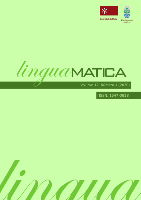
Linguamatica
Pioneering New Perspectives in Linguistic Studies.Linguamatica is a prominent open-access journal published by UNIV MINHO, INST EDUCACAO, CENTRO INVESTIGACAO EDUCACAO in Portugal, with the objective of advancing the field of linguistics and language studies. Since its establishment in 2009, the journal has served as a vital platform for disseminating high-quality research and innovative studies in linguistics, emphasizing both theoretical and applied perspectives. With an impressive Scopus ranking placing it in the 76th percentile in Arts and Humanities and the 73rd percentile in Social Sciences, Linguamatica is recognized for its significant contributions and rigorous peer-review process. The journal's commitment to open-access publishing ensures that research findings are accessible to a wider audience, fostering collaboration and knowledge sharing among researchers, professionals, and students. Located at CAMPUS GUALTAR, BRAGA 4710, PORTUGAL, Linguamatica aims to be a leading source of valuable insights in linguistics, covering a diverse array of topics from language acquisition to sociolinguistics, thereby playing a crucial role in shaping contemporary language research.
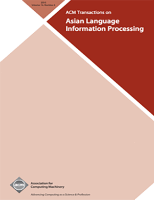
ACM Transactions on Asian and Low-Resource Language Information Processing
Fostering collaboration in low-resource language research.ACM Transactions on Asian and Low-Resource Language Information Processing is a distinguished scholarly journal published by the Association for Computing Machinery (ACM), focusing on the processing of Asian and low-resource languages in the field of computer science. With an ISSN of 2375-4699 and an E-ISSN of 2375-4702, this journal serves as a vital platform for researchers and professionals dedicated to advancing language technology and natural language processing in underrepresented linguistic contexts. It has achieved a notable position in the academic community, ranking #94 out of 232 in the broader category of Computer Science with a 59th percentile ranking according to Scopus. As the journal converges on its comprehensive goals from 2015 to 2024, it emphasizes open debates and innovative methodologies to tackle challenges relevant to low-resource language processing. This commitment to publishing high-quality research, though it does not currently offer open access, ensures that the journal remains an essential resource for researchers, educators, and students striving to contribute to this dynamic field.

Machine Intelligence Research
Pioneering Research in Machine Intelligence and BeyondMachine Intelligence Research is a premier academic journal published by SPRINGERNATURE, dedicated to advancing knowledge in the rapidly evolving fields of Artificial Intelligence, Applied Mathematics, and more. With its ISSN 2731-538X and E-ISSN 2731-5398, the journal is recognized for its impact, holding a distinguished position in various Q1 categories for 2023, including Computer Vision and Pattern Recognition and Control and Systems Engineering. Operating under an Open Access model, it ensures that groundbreaking research from China and around the world remains accessible to a global audience, promoting collaboration and innovation. As a beacon for researchers, professionals, and students, Machine Intelligence Research aims to disseminate high-quality research findings, innovative methodologies, and influential theories, thereby shaping the future landscapes of science and technology.
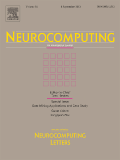
NEUROCOMPUTING
Advancing Knowledge in Neural Computation and AINEUROCOMPUTING is a premier academic journal published by ELSEVIER, specializing in the interdisciplinary fields of Artificial Intelligence, Cognitive Neuroscience, and Computer Science Applications. With an impressive impact factor and a Q1 ranking in its relevant categories for 2023, NEUROCOMPUTING is recognized as a leader in fostering innovative research and providing a platform for ground-breaking studies. The journal’s scope covers the convergence of neural computation and artificial intelligence, making it essential reading for researchers and professionals seeking to explore the latest advancements and applications in these dynamic fields. For those interested in the cutting-edge intersection of neuroscience and computational techniques, NEUROCOMPUTING offers a wealth of knowledge that significantly contributes to both theoretical and practical advancements. The journal is dedicated to publishing high-quality, peer-reviewed articles and is an invaluable resource for students and established scholars alike, looking to stay at the forefront of research trends.

Glottometrics
Advancing Language Studies Through Numerical InsightsGlottometrics is an esteemed academic journal dedicated to the intersection of linguistics and quantitative methods, published by the International Quantitative Linguistics Association (IQLA). Based in Germany, this journal serves as a vital platform for researchers and professionals in the fields of linguistics and applied mathematics, fostering the exploration of quantitative approaches to language studies. With its impact factor reflecting its commitment to high-quality research, Glottometrics has established a robust presence in the academic community, as denoted by its categorization in the Q2 quartile in Linguistics and Language and Q4 in Applied Mathematics. While the journal operates on a subscription-based model, it has made significant strides in the ranking hierarchy, securing positions in the 44th to 48th percentiles across various relevant categories in Scopus. Spanning the years 2017 to 2024, Glottometrics invites contributions that harness innovative quantitative methodologies for linguistics research, making it an essential resource for students, researchers, and professionals engaged in the dynamic analysis of language.

Language Resources and Evaluation
Empowering research through language resources.Language Resources and Evaluation, published by SPRINGER, is a leading peer-reviewed journal that focuses on the interdisciplinary field of language resources, evaluation, and their applications across various domains. With an impressive impact factor reflecting its academic rigor and influence in the fields of Education, Library and Information Sciences, Linguistics, and Language, this journal is categorized Q1 (2023) within these disciplines, underscoring its significance and high-quality contributions. Operating from the Netherlands, the journal has consistently delivered valuable insights since its inception in 1996, with ongoing publications continuing through 2024. Researchers and professionals are provided with open access options, fostering a global exchange of knowledge crucial for advancing the study and application of language technologies and resources. As it continues to rank exceptionally in Scopus, this journal serves as an essential platform for academics, offering a comprehensive understanding of the challenges and innovations in evaluating language resources.

MACHINE TRANSLATION
Advancing knowledge in the realm of language technology.MACHINE TRANSLATION, published by Springer, is a premier academic journal dedicated to the interdisciplinary fields of Artificial Intelligence, Linguistics, and Software Development. With its origins dating back to 1989, the journal has played a crucial role in disseminating cutting-edge research and advancements in machine translation technologies. The journal holds a distinguished Q3 ranking in Artificial Intelligence and Q1 in Linguistics and Language for 2023, underlining its relevance and impact in the linguistic and computational research communities. Despite coverage discontinuation in Scopus, it continues to have impressive rank positions in various categories, including 31st percentile for Language and Linguistics and 112th for Artificial Intelligence. Researchers, professionals, and students can access a wealth of impactful articles that explore the latest methodologies, tools, and applications in the domain of machine translation, solidifying its importance for anyone vested in the future of language technology.

Neurobiology of Language
Advancing understanding at the crossroads of linguistics and neuroscience.Neurobiology of Language, published by MIT Press, is a premier scholarly journal dedicated to pioneering research at the intersection of linguistics and neuroscience. As part of the prestigious Q1 quartile in both Linguistics and Neurology, this journal not only ranks in the top tier of its fields—placing 41st out of 1167 in Linguistics and 57th out of 192 in Neurology according to Scopus—but also serves as a vital platform for innovative studies that explore the complexities of language from a neurobiological perspective. Though offered under a traditional subscription model, the journal ensures accessibility to groundbreaking research that is crucial for advancing our understanding of how language is processed and represented in the brain. With a focus on works produced between 2020 and 2024, the Neurobiology of Language is committed to disseminating influential and transformative research that shapes the future of cognitive science, language development, and neuropsychology, making it an essential resource for researchers, professionals, and students alike.